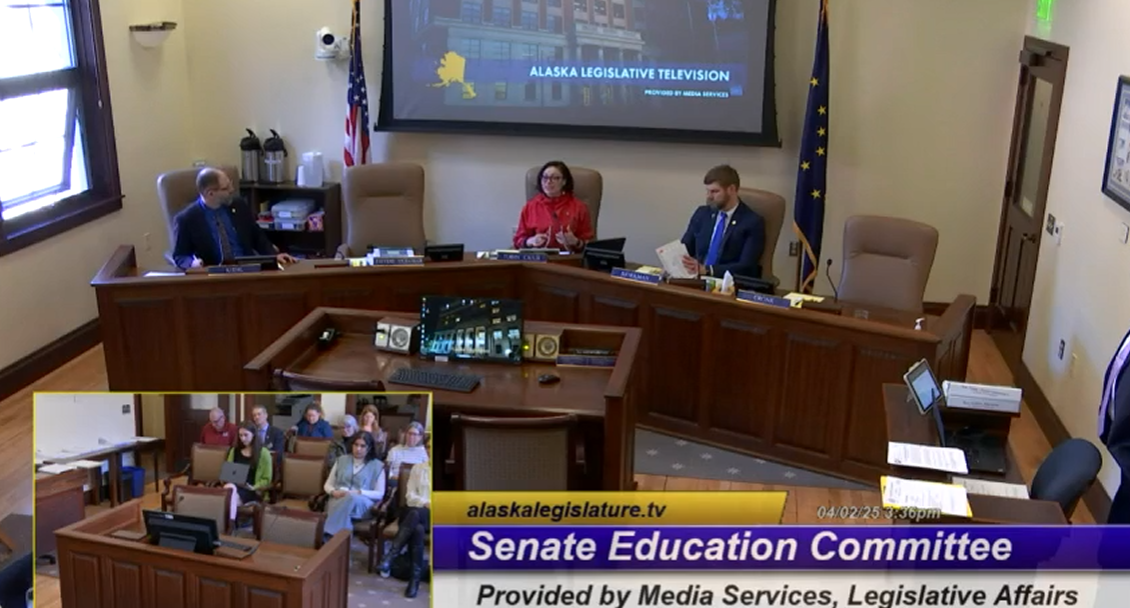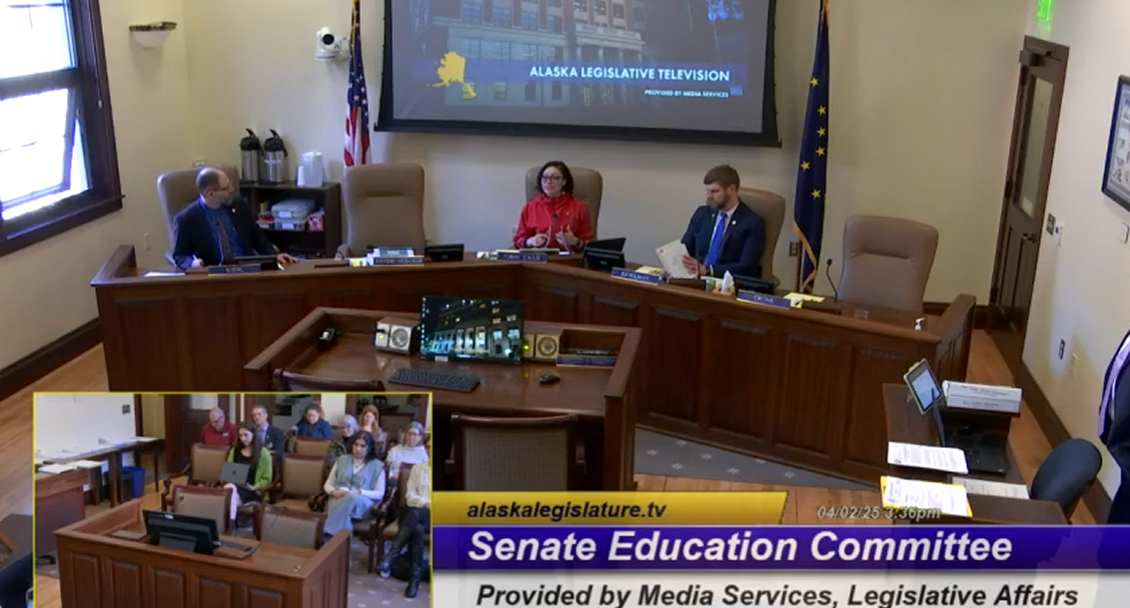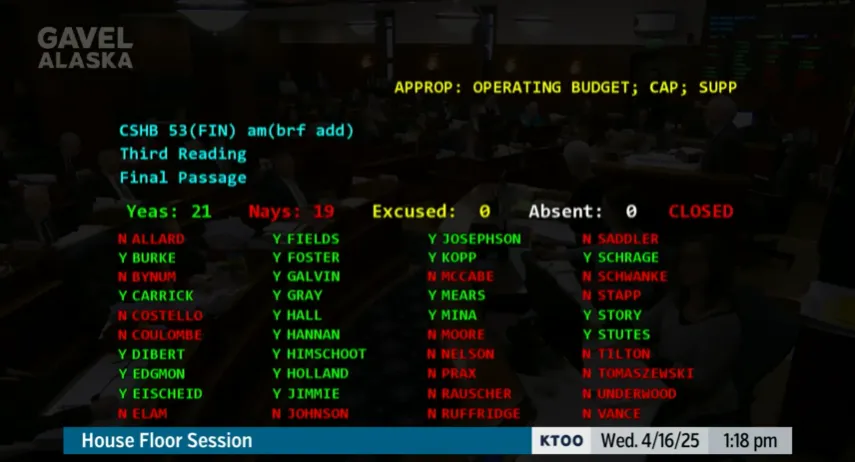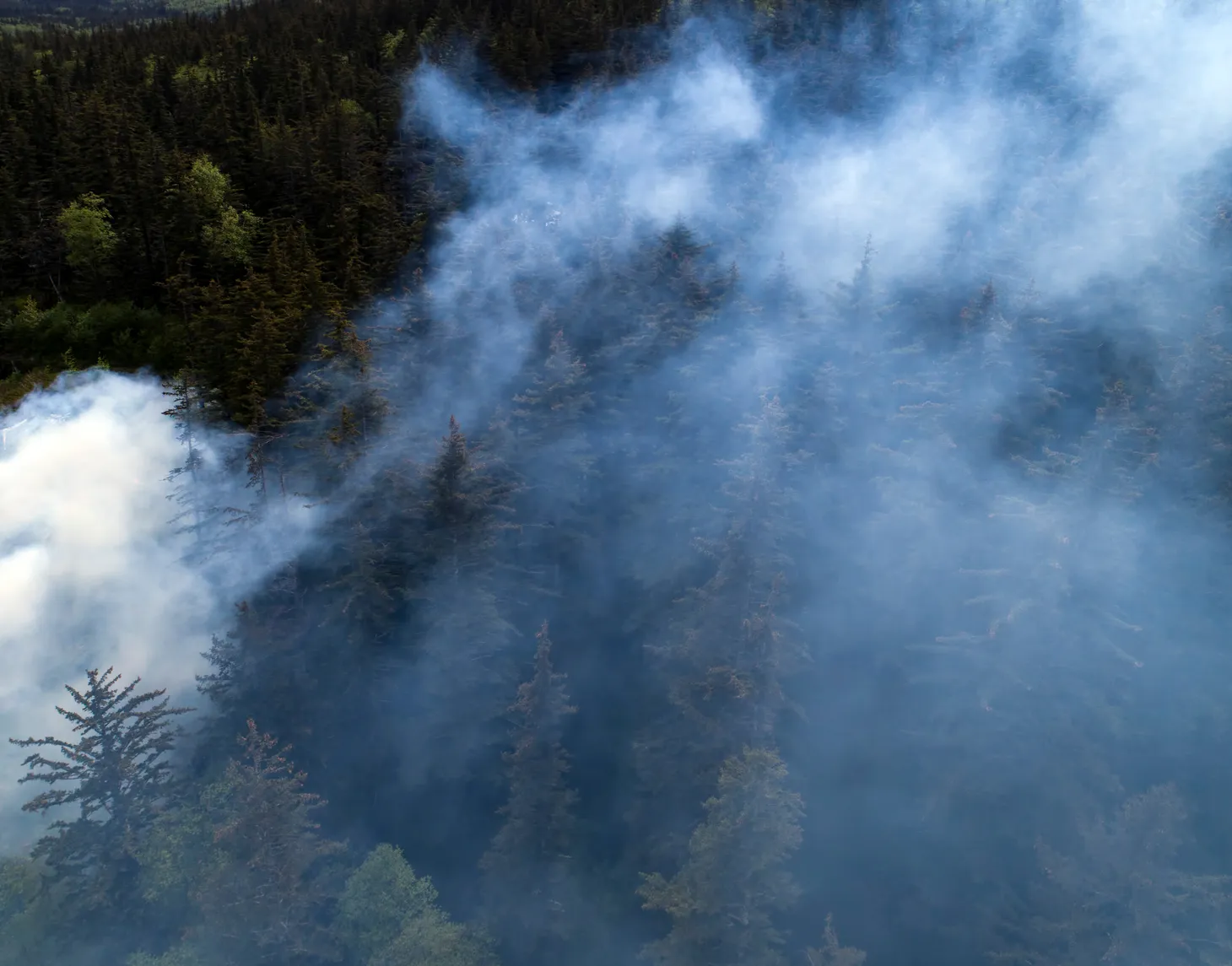Education bill advances with homeschool testing requirement and UA Regents rebuked for anti-DEI measure
The new provisions are aimed at shining light on just how effective homeschool programs actually are. Meanwhile, regents were forced to squirm a bit over their decision to preemptively censor the university system.

Good morning, Alaska! It's Thursday. Day 73 of the session.
In this edition: The Trump “liberation day” tariffs are wreaking havoc on the markets and cratering oil prices – bad news for a state that’s largely reliant on revenue from investments and oil – as the Alaska Legislature continues to push forward with the budget, including a long-overdue increase to public school funding that advanced out of the Senate Education Committee on Wednesday. The latest version of the school funding bill also contains a provision requiring families receiving homeschool allotments to participate in standardized testing, a big change considering only about 14% currently take the test. Meanwhile, state senators also delivered a strong rebuke of the University of Alaska Board of Regents’ anti-DEI initiative that “absolutely toadies, bootlicks and rolls over and submissively wets” to the federal government.
Current mood: 😵💫
Education bill advances with homeschool testing requirement

The Senate Education Committee voted on Wednesday to advance House Bill 69, which would enshrine a $1,000 increase to per-student funding in state law. The base student allocation (BSA) has been largely unchanged for much of a decade while inflation and other pressures have erased much of its buying power, which public school officials and supportive legislators have called a de facto cut to spending in the classroom as they divert funds to cover ever-increasing costs for things like utilities and transportation.
The actual impact on per-student funding will vary from district to district and student to student because the BSA is run through the state’s foundation formula, which adjusts the funding for regional costs and the needs of the students. In total, it’s estimated to deploy about $253 million in additional funding for public schools.
Just how that additional funding fits into a budget that already is in deficit territory is a question for the folks on the Senate Finance Committee, who will have the legislation next. There’s been movement on additional tax revenue – the Senate Resources Committee advanced a measure on Wednesday that’s expected to generate about $100 million by extending the corporate income tax to companies, specifically Hillcorp, that operate as S-Corporations where their profits are taxed as personal income – but also some growing talk about utilizing savings or reducing the dividend. It’s too early to tell what direction things are going to land, but the preference appears to be taxes on the oil industry.
Which, frankly, probably sounded a lot better before oil prices fell by about 7% (so far).
Pulling away from the abyss, the Senate also introduced several other changes to House Bill 69 that are worth digging into.
The one that really caught my eye is a new requirement for students receiving homeschool allotments – which are still funded with 0.9 of the BSA – to participate in some kind of assessment. As previous hearings have established, just 14% of homeschool students participate in testing, which is far lower than the testing rate for kids in brick-and-mortar schools. It’s left a major blind spot in whether homeschooling is actually as effective as its proponents argue when trying to justify investing only in homeschooling (as opposed to raising the BSA, which raises homeschool funding along with everyone else).
Per the language in the bill, it would only allow allotments to go out if a student “participated in a state standards-based summative assessment or an alternative assessment approved by the department; or submitted a student portfolio based on criteria established by the department of regulation.”
The committee approved an amendment that would delay the assessment language to the 2026-2027 school year.
It’ll likely be a major point of contention moving forward. Homeschool supporters who have regularly bristled at testing requirements are also some of the loudest voices against increasing funding for brick-and-mortar schools because they claim that it’s wrong to invest in systems that produce poor test scores. While they’ve claimed that homeschooling and charters are superior and worthy of investment, they really don’t have the numbers beyond anecdotes to support their cause.
Other interesting additions to the bill include:
- Maximum class guidelines that would require districts to report on why they were unable to meet the limits and what they need to meet them.
- Directs the Department of Education to track and report on academic progress over time.
- Directs the Departments of Education and Labor to work together to collect long-term data on high school graduates every 5 years until 20 years after graduation.
- Requires the Board of Education, not just the Education Commissioner, to weigh in on charter school application appeals.
- Revises the language around how much funding school districts can retain for the management costs of school districts, setting it at 8% of funding (the number proposed in the House version) or the actual accrued costs, whichever is lower.
- Additional grants for K-3 students who are not reading at grade level, instead of just offering grants for students who are reading at grade level.
‘Absolutely toadies, bootlicks and rolls over and submissively wets’

The Senate Education Committee also rebuked members of the Board of Regents, two of whom were up for confirmation hearings on Wednesday, for their preemptive decision to self-censor the University of Alaska system, erasing mentions of diversity, equity, inclusion, and, in some cases, Alaska Natives from university communications. The surprise motion at the Board of Regents’ February meeting was pushed by the board’s most conservative regents in response to the Trump administration’s strongarming of universities.
Committee Chair Sen. Löki Tobin, D-Anchorage, opened the hearings by sharing her love of the University of Alaska system, where she is currently pursuing a PhD. She said the previous values of the system of honoring the state’s diversity and indigenous knowledge have been meaningful and part of the reason she’s dedicated 5% of her will to the university. She said, however, that the recent changes at the university have betrayed many of those values.
"Unfortunately, I have had my faith shaken over the last few weeks. It has been deeply shaken," she said. "I know many of my fellow colleagues and fellow students are feeling similar. We are feeling unheard, we are feeling unseeen. ... I want you to know that there are people like me who care very deeply about this institution that you are there to protect and defend, not just from things that are happening in Washington but also from all of the terrible things that impede academic freedom, research integrity and ensure that people are able to collect information in a way that actually gets the right research into the hands of people who can really make a difference."
The directive didn’t come up much during the hearing for Regent Karen Perdue, who was not at the meeting where the vote was taken, but it did focus heavily in the questioning of Regent Christine Resler, who voted in support of the resolution. She opened her comments by claiming that she was also caught by surprise by the resolution but that “I’d rather look to the future than the past.”
“We had a difficult decision before us,” she said, adding that as an employee of an Alaska Native corporation, she really takes Alaska Native education seriously. "It happened very suddenly, and we were trying to do the right thing. I stand by us trying to do the right thing."
As part of the broader purge of DEI from the University of Alaska, they dropped “Alaska Native” from the Alaska Native Science and Engineering Program.
Some of the sharpest questioning came from Sen. Jesse Kiehl, D-Juneau, who said the measure appeared to be a complete supplication to the federal government. Rather than diving into the specifics of Trump’s attacks on diversity – he never specifically mentioned Trump at all, a point that reminded me of on Bluesky – he worried that the university was voluntarily ceding its independence.
“It absolutely toadies to the federal government. Toadies, bootlicks, rolls over and submissively wets,” he said. “It doesn't just say we're going to follow the U.S. Constitution or federal law, it says any guidance, any executive order or any guidance on executive orders that come out of the federal government – anything from the U.S. Department of Education on Maryland Avenue in Washington, D.C. – is the law of the University of Alaska system.
“Is there any red line at all?”
Resler gave a meandering answer about a “very dynamic environment” and their intention to “support the students,” which didn’t provide any meaningful clarity, and Kiehl was quick to point that out. Is she willing to protect students and faculty, or is she prioritizing the dollar?
“I think there's a balance," she said. "The regents will look to find the right balance. I think there are a lot of unknowns right now, and we will look forward, and I think going forward that we will be sure we are comfortable as a board with what's right, and what the students and faculty find important is definitely important to us and important to me.”
Stay tuned.
Follow the thread: The Senate Education Committee’s confirmation hearing
Additional coverage:
The Alaska Memo Newsletter
Join the newsletter to receive the latest updates in your inbox.




